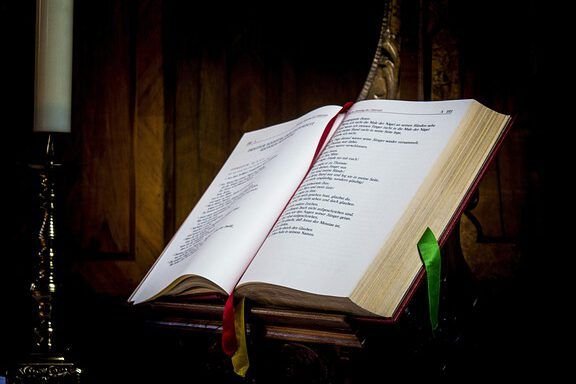What is the difference between the Catholic and Evangelical Bible? The Bible is the most important book in Christianity, serving as the foundation of faith and practice for millions of believers around the world. However, there are two main branches of Christianity: Catholicism and Evangelicalism, each with their own unique interpretation of the Bible. In this article, we will explore the key differences between the Catholic and Evangelical Bibles.
Bible: The law of attaction
Biblia: La ley de la atracción
Canon
The canon refers to the collection of books that make up the Bible. It is important because it determines which books are considered authoritative and inspired by God. The Catholic and Evangelical canons differ in several ways. The Catholic canon includes several books that are not found in the Protestant Bible, such as Tobit, Judith, Wisdom, Sirach, Baruch, and 1 and 2 Maccabees. These books are known as the Deuterocanonical books. The Evangelical canon, on the other hand, only includes the books found in the Hebrew Bible and the New Testament.
Translation
The translation of the Bible is important because it determines how the text is understood and interpreted. The Catholic Bible is typically translated from the Latin Vulgate, which was translated by St. Jerome in the 4th century. The Evangelical Bible, on the other hand, is typically translated from the original Hebrew and Greek texts. This means that the Evangelical Bible is often considered to be a more accurate translation of the original text.
Interpretation
The interpretation of the Bible is important because it determines how the text is applied to daily life. Catholics and Evangelicals have different interpretive methods. Catholics rely heavily on tradition and the teachings of the Church, while Evangelicals focus more on individual interpretation and the guidance of the Holy Spirit. This can lead to differences in how certain passages are understood and applied.
Additional Books and Doctrines
In addition to the differences in canon, translation, and interpretation, there are also differences in the additional books and doctrines used by Catholics and Evangelicals. Catholics believe in the doctrine of purgatory, the intercession of saints, and the perpetual virginity of Mary, among other things. Evangelicals, on the other hand, reject these doctrines and focus more on the importance of personal salvation and a personal relationship with Jesus Christ.
In conclusion, the Catholic and Evangelical Bibles differ in several key ways, including the canon, translation, interpretation, and additional books and doctrines. Understanding these differences is important for Christians because it can help them to better understand their own faith and the faith of others. Ultimately, the most important thing is to read and study the Bible for oneself, seeking guidance from the Holy Spirit and the teachings of the Church.
Key Takeaways:
- The Catholic and Evangelical canons differ in several ways, with the Catholic canon including several books not found in the Protestant Bible.
- The Catholic Bible is typically translated from the Latin Vulgate, while the Evangelical Bible is typically translated from the original Hebrew and Greek texts.
- Catholics rely heavily on tradition and the teachings of the Church, while Evangelicals focus more on individual interpretation and the guidance of the Holy Spirit.
- Catholics believe in the doctrine of purgatory, the intercession of saints, and the perpetual virginity of Mary, among other things, while Evangelicals reject these doctrines.
| Canon | Translation | Interpretation | Additional Books and Doctrines |
|---|---|---|---|
| Catholic | Translated from the Latin Vulgate | Relies heavily on tradition and the teachings of the Church | Belief in purgatory, intercession of saints, perpetual virginity of Mary, among other things |
| Evangelical | Translated from the original Hebrew and Greek texts | Focuses more on individual interpretation and the guidance of the Holy Spirit | Rejects the above-mentioned doctrines and focuses more on personal salvation and a personal relationship with Jesus Christ |
It is important to remember that while there are differences between the Catholic and Evangelical Bibles, both groups share a common belief in the importance of the Bible as the foundation of faith and practice.
Overall, understanding the differences between the Catholic and Evangelical Bibles can help Christians to better understand their own faith and the faith of others. By studying the Bible for oneself and seeking guidance from the Holy Spirit and the teachings of the Church, Christians can deepen their understanding of God's word and grow in their faith.
Christianity TodayChristianity.com
Bible: The law of attaction
Biblia: La ley de la atracción
 Celebrate Bible Day on September 27: Learn the Importance of Scripture!
Celebrate Bible Day on September 27: Learn the Importance of Scripture! Childfree by Choice: What the Bible Says About Choosing Not to Have Children
Childfree by Choice: What the Bible Says About Choosing Not to Have ChildrenSi quieres conocer otros artículos parecidos a Catholic vs Evangelical Bible: Uncovering the Key Differences puedes visitar la categoría Entertainment and Miscellaneous.


Leave a Reply